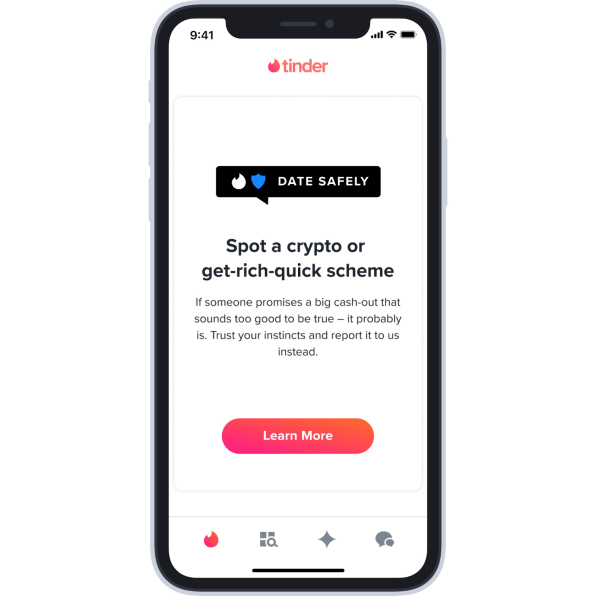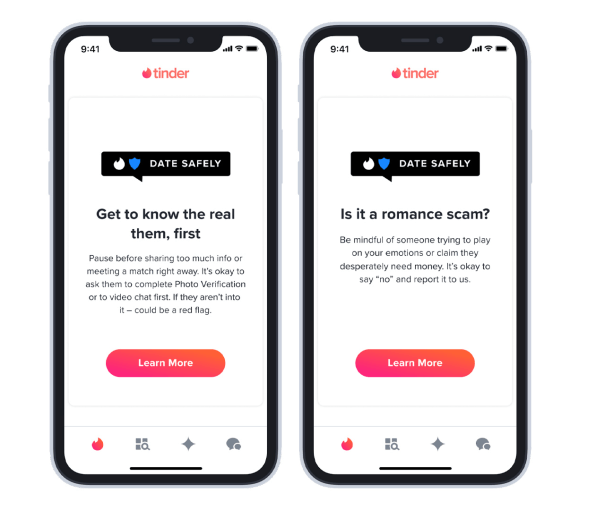Why Match Group wants to raise the number of romance scams that users report
If your latest dating app connection is asking you to invest in crypto, it’s a red flag. That’s part of the latest message from dating app behemoth Match Group, which is rolling out an in-app campaign across a number of its largest apps to warn users about potential romance scams.
Throughout the month of January, users in 15 countries on a handful of its apps, including Tinder, Hinge, Match, and Plenty of Fish, will begin to receive messages promoting tips and red flags to watch out for to help identify potential bad actors. It marks the first time Match Group is launching a broad education campaign across a number of its family of apps, a spokesperson says.

The company is trying “to bring awareness to a topic that is widely underreported by folks due to the stigma around reporting this type of harm,” Buddy Loomis, Match Group’s senior director of law enforcement operations and investigations, told Fast Company. “We actually want to increase the number of reports that come in when suspicious activity is happening,” she later added.
Romance scams reported in the U.S. result in higher losses than any other type of scam, according to the Federal Trade Commission. Since 2020, consumers have reported more than $300 million in losses. In 2022, data from the Global Anti-Scam Organization report indicate that the average reported loss was more than $190,000, up from $120,000 in 2021.

Match’s companies will start promoting tips like keeping the conversation within the app for as long as possible (rather than switching to another messaging platform), setting up video dates, using photo verification, reporting interactions that peddle crypto or investment advice, and staying vigilant as scams evolve. When asked if Match Group would start requiring all customers to go through ID verification, Loomis said that it was “something that I think we’re all going to continue to talk about.”
“We are constantly investing in new technology to ensure that our members are safe,” Loomis added. “I can’t say that’s something that we’re going to mandate today. But we’re always in discussions and always looking for abilities for us to help our members stay safe online.”
(21)



